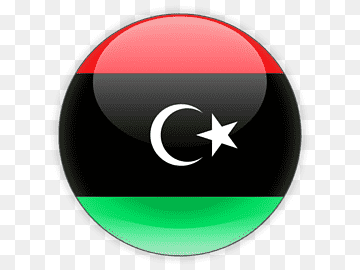Rich in natural wealth and history, North African nation Libya has lately experienced significant political and social transformation. Libya still draws a lot of regional and worldwide attention despite its historical civilisations, breathtaking desert landscape, and vital location.
Geography: Geographic and Resources
Bound by Egypt, Sudan, Chad, Niger, Algeria, and Tunisia, Libya ranks as the fourth largest country in Africa. Its long Mediterranean coast enables it to be a main actor in regional trade. Rich in oil reserves, the country boasts the Sahara Desert, which covers most of its land and propels its economy largely using petroleum.
An Interpretive Guide to Libyan History
Libya’s past runs thousands of years, influenced by Phoenicians, Romans, and Ottoman Turks. Originally an Italian colony (1911–1943), it gained freedom in 1951 and, under King Idris I, founded the Kingdom of Libya.
1969 saw Colonel Muammar Gaddafi overthrow the monarchy and rule for over four decades. His policies were socialist, pan-African, and shaped by world conflicts. Although his authoritarianism and violations of human rights most of the time attracted condemnation, Gaddafi upgraded Libya’s infrastructure and drove economic distribution.
2011The Revolution and Its Afterglow
Inspired by the Arab Spring, protests beginning in Libya in 2011 led to a civil war. With NATO’s help, Gaddafi was removed and killed, therefore leaving a leadership vacuum that drove the country into anarchy.
Since then, Libya has suffered politically; it has gone through military strife and had rival governments. Foreign nations back several groupings, so the country has been divided between the Government of National Unity (GNU) in Tripoli and the House of Representatives in Tobruk.
Modern Challenges and Future Possibilities
Libya’s main challenges consist of:
political turmoil brought on by several leaders.
Violence and bloodshed in the militia.
Financial difficulties notwithstanding, tremendous wealth in oil.
Migration issues since Libya is a stop for immigrants heading to Europe.
Still, peace talks and diplomatic efforts are still designed to enable Libya to regain normalcy. Still strong, the Libyan people hope for a wealthy and peaceful future.
Final Thought
Libya’s path has been distinguished by rich history, political turbulence, and resiliency. Even as it negotiates modern challenges, the nation offers opportunities for progress and recovery. By means of internal unity and international cooperation, Libya can open the route for a better future.
Stay informed with the most recent developments in the Libyan political and financial landscape!
